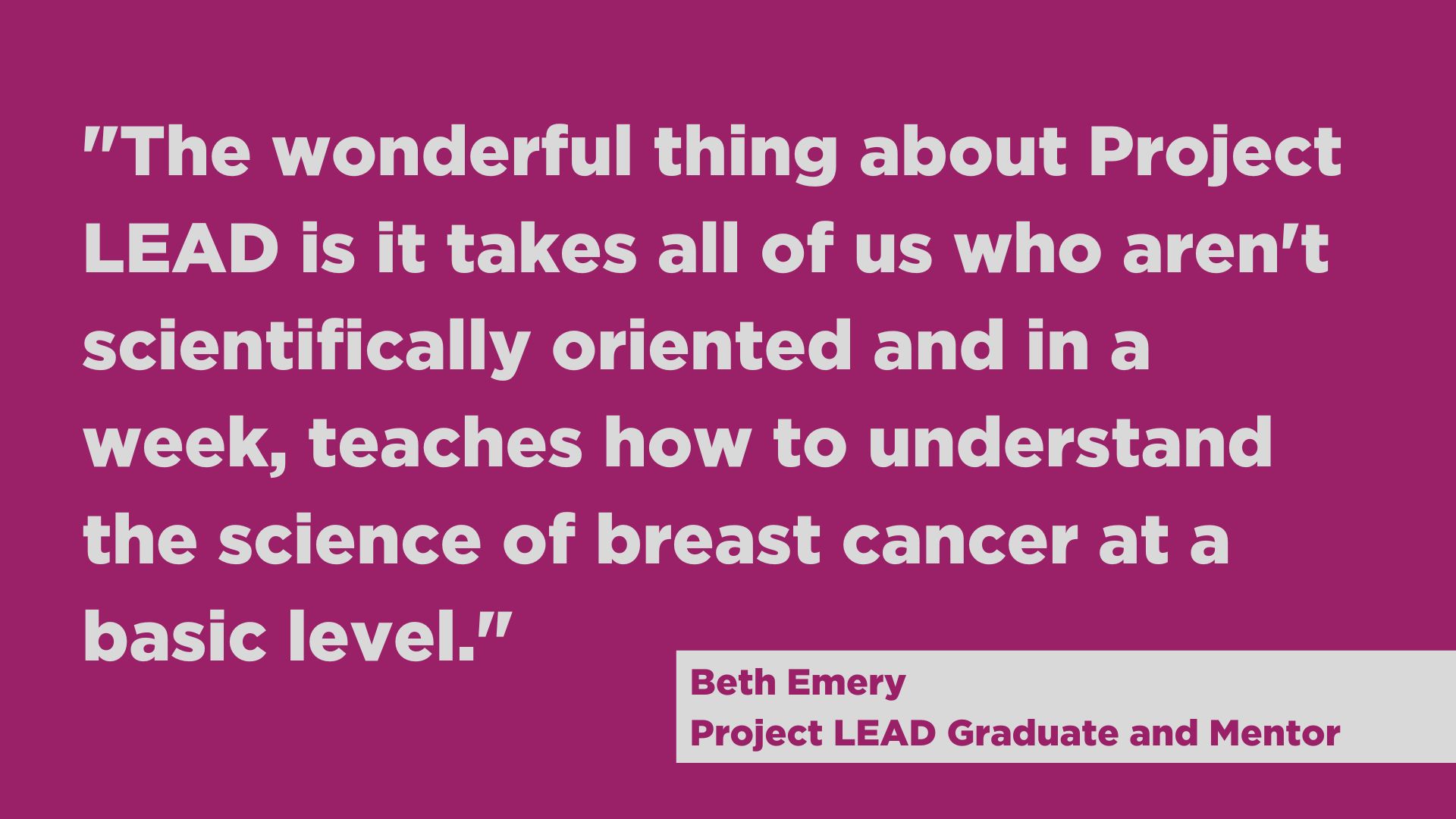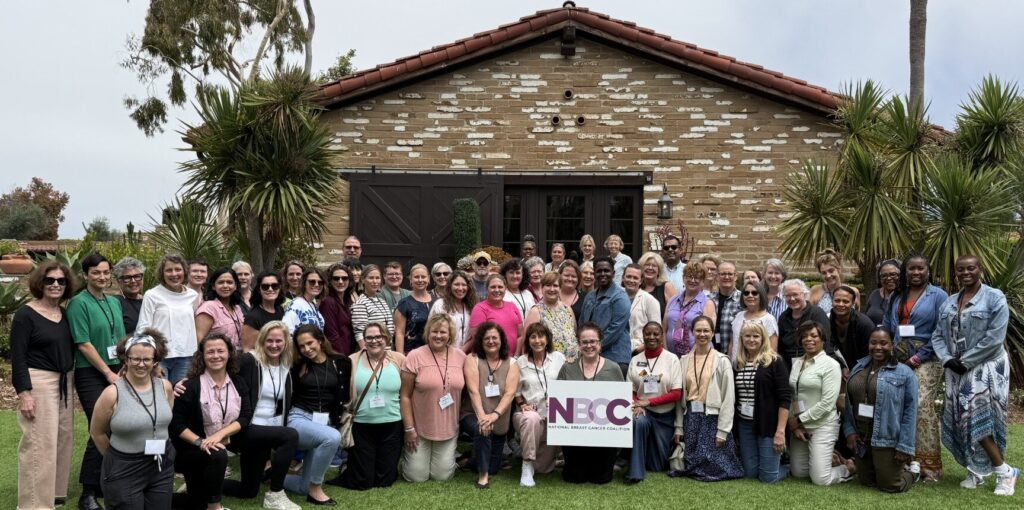
NBCC’s Project LEAD is the premier science training program for breast cancer advocates. At the annual Project LEAD Institute, students prepare to engage in a wide range of local and national forums where breast cancer decisions are made.
During the six-day course, renowned research faculty teach advocates the basics of cancer biology, genetics, epidemiology, research design, and advocacy, providing them with a foundation of scientific knowledge upon which they can strengthen and empower themselves as activists.
After completing the course, Project LEAD graduates bring an educated consumer perspective and critical thinking skills to the important issues and controversies in breast cancer, from reviewing research proposals for new treatment options to lobbying for research funding on Capitol Hill.

Project LEAD attendees are:
Dates: July 26 – 31, 2026
Location: Estancia La Jolla Hotel & Spa, La Jolla, CA
Cost: There is no registration or tuition fee, and course materials, content, and meals are provided. Attendees are expected to cover their own travel and stay at the Estancia. Some scholarships are available– please see FAQ below.

Applications are now open!
Only complete application packages will be reviewed. Acceptances will be made on a rolling basis beginning in January 2026.
Application Deadline: May 1, 2026
Project LEAD graduates work in all aspects of breast cancer-related research, quality care improvement, and evidence-based health care and decision-making. They:
Graduates also gain access to high-quality continuing education opportunities and communications, including NBCC’s Learning Management System, exclusive webinars, the monthly Project LEAD Insider newsletter, and conference sessions.
“I used to think there were few ways for regular people like me to influence the legislative process and get through to powerful decisionmakers.
“Thanks to my NBCC training, I view that as a possibility now. I’ve seen the power of constituent voices— real people impacted by breast cancer— in moving the needle.”
“Before Project LEAD, I had passion and lived experience. After Project LEAD, I had the language and tools to turn that into impact…
“It’s not just about being in the room; it’s about using my voice as an informed partner, and Project LEAD helped make that possible.”
“Project LEAD wasn’t just a training. It was a reminder that advocacy isn’t only about speaking up—it’s about learning so we can speak up more powerfully. And when you combine that knowledge with the passion that filled those rooms? There’s nothing we can’t do.”

Since the first Project LEAD in 1995, NBCC has made providing outstanding breast cancer education a key part of its mission. Historically, these programs have included two-day workshops, topic-specific training sessions, as well as international programming. Explore some of Project LEAD’s previous offerings: